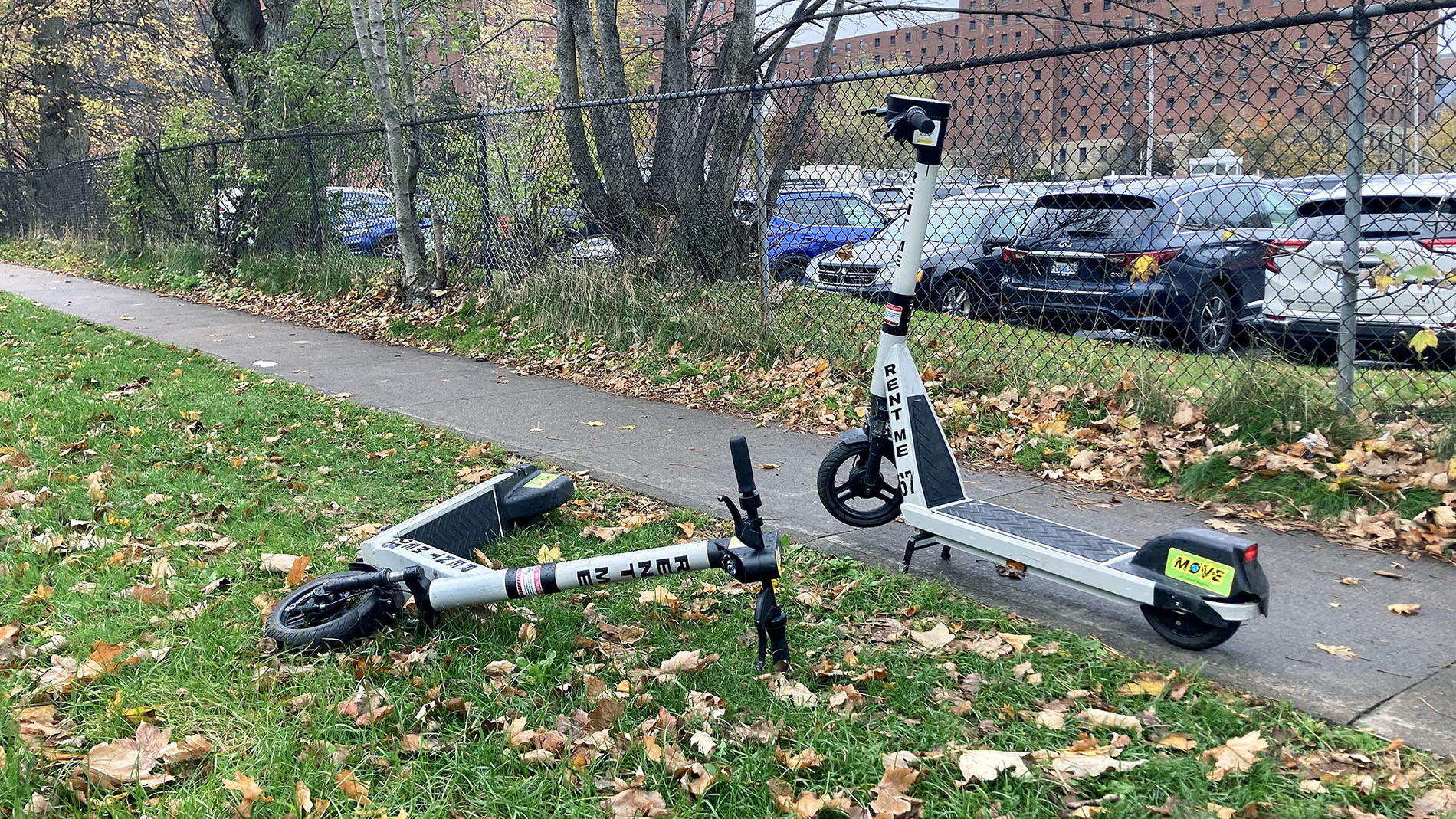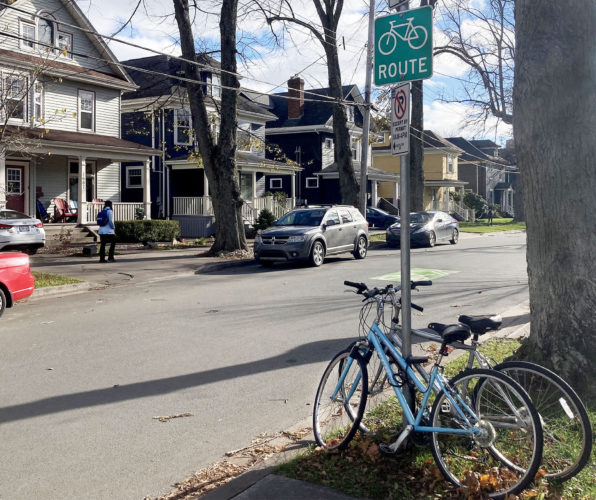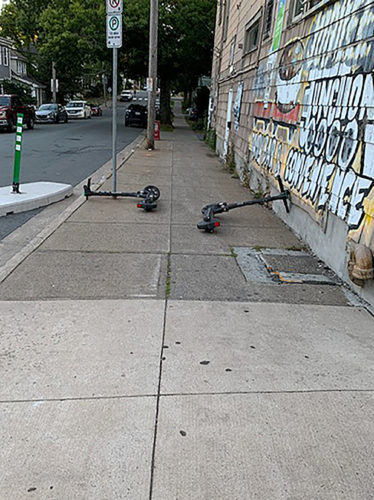Lower speed limits, docking areas among Halifax e-scooter bylaw recommendations
Committee presents ideas for new rules governing motorized scooters, bikes

caption
Two e-scooters sit next to a sidewalk on South Street. HRM's active transportation advisory commitee is considering recommendations for e-scooter bylaws in Halifax, including speed limits and parking zones.A 20 km/h speed limit and docking areas for electric scooters could be on their way to Halifax Regional Municipality.
Members of HRM’s active transportation advisory committee debated e-scooter and e-bike bylaw proposals Thursday, a step towards the municipality’s first set of rules for the devices. Committee chair Hugh Millward also presented four other bylaw recommendations at the meeting:
- Stricter enforcement of speed limit.
- Making one-way bike lanes at least three metres wide and bidirectional lanes 4.5 metres wide.
- Stricter enforcement of helmet requirements on scooters and bikes.
- Requiring the use of bells or horns.
Halifax regional council has the final say on whether proposals become bylaws. The committee discussed whether to ask for a staff report be done based on the recommendations, but voted instead to revisit them during its next meeting on Jan. 19.
The only laws for e-scooter use in HRM come from Nova Scotia’s Motor Vehicle Act. Amendments to include e-scooters came into effect earlier this year, setting a 32 km/h speed limit and minimum riding age of 14. Riders must also wear helmets. Related stories
Enforcement, staff report points of concern
While committee members agreed on a lower speed limit, other points were debated.
Committee member Peter Zimmer said he wasn’t sure if stricter enforcement would happen. Instead, the bylaws could succeed with better public education on courtesy and “rules of the road,” he said, similar to rules with cars.
Zimmer also expressed concern a staff report would “put cars first,” as, he said, past staff reports had shaped cycling and transit solutions around cars.
For speed limits, member Holly Woodill said there should be an option to lower speed limits in specific areas such as parks.

caption
Bicycles are chained to a bike route post on Vernon Street in Halifax. Increasing the width of bike lanes was among the recommendations presented at the city’s active transportation advisory committee meeting on Thursday.Rental scooters a focus
The docking station recommendation was proposed to resolve “scooter litter,” which refers to how rental scooter users leave them in random places.
The devices are rented but can be left in most places around the city, where the rental company retrieves them later. The company can track them through GPS.
Jen LaPlante uses sidewalks every day, coming across discarded e-scooters regularly. Some mornings, she’ll find as many as four scooters blocking sidewalks, which she said can obstruct those with mobility issues.
“I find them everywhere,” LaPlante said in an interview last week. She didn’t attend the meeting.
The use of scooters, she said, should be encouraged and rentals allowed. But she said more needs to be done by HRM to make active transport safer.
A network of bike lanes is being built in HRM, but the project isn’t even half-done.
“What we have is a lack of infrastructure and rules that govern how they should be used,” LaPlante said.

caption
Jen LaPlante found these two e-scooters lying on the corner of Preston Street and Jubilee Road.Max Rastelli, the owner of scooter rental business HFX e-Scooters, said he welcomes discussion of scooter regulation in Halifax. However, he opposes scooter docking stations. He said one of the advantages of rentals is the convenience of parking closer to more destinations.
“If you think about what shared micro-mobility is supposed to do, it’s to conveniently and safely get people from point A to point B. It’s not supposed to be like another bus stop,” Rastelli said.
He didn’t attend the meeting but said he spoke with HRM employees about what potential bylaws could look like. The challenge for his business, he said, is to balance the safe and appropriate use of his scooters with customer convenience.
An HRM study from July 2020 surveyed residents on how scooter and bike-share systems should run, with safety being a top concern. A feasibility report based on the results is being prepared.
In an interview, advisory committee chair Millward said he expects recommendations to change, as there’s still much to be explored.
“We’re really just suggesting some starting positions,” he said.
About the author
Luke Dyment
Luke Dyment is a Halifax-based reporter from Prince Edward Island. He has written for the Globe and Mail, The Signal and the Dalhousie Gazette....

K
Kim